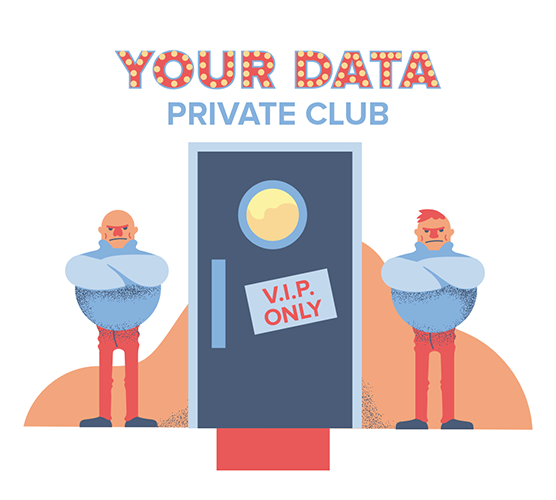
Let’s not be naive, the Internet can be just as dangerous a place as it feels. With new, affordable technologies and infrastructures being developed every day, the Internet is becoming more accessible than ever before. In total, over 55% of the world’s population is online, and that is no small achievement. Just 10 years ago it was less than 23%. The Internet, and mobile broadband specifically, has become the fastest growing technology ever. Considering the number of internet users, there is no doubt that you need to remain vigilant online. The push for greater digital privacy is in full swing, as the number of users increases. There’s no exact number specifying how much internet traffic is used for malicious purposes like stealing user data, DDOS attacks, or spreading malicious software and viruses, but the estimates vary from 1% up to 15%, and even that conservative 1% is a way higher risk than we consider acceptable. At Trezor we live and breathe security, and our top priority is to keep our users safe in any circumstance. Since we are celebrating the 12th annual Data Privacy Day, we feel like there’s no better time to talk security and privacy, and here’s our take on how to stay safe online in the digital age, Part One.
1. Keep your devices clean.
Always make sure that the security updates of your operating system are up to date, and use trusted security software downloaded only from the website of the original developer. Create a schedule to run regular security checks and updates, and check your firewall settings once in a while.
2. Use only trusted networks if possible.
We highly recommend against using public Wi-fi networks in general. To make the public networks available, they’re very often using minimal security settings. A malicious stranger can easily access your device and data through such a network. We suggest that you install and enable Virtual Private Network (VPN) software which encrypts your connection and prevents anyone from accessing it. Set up a VPN on your devices and keep it enabled at all times.
3. Adjust your online privacy settings.
There are a few groups of users on the internet who want to know as much as possible about you — your friends, marketers, and hackers. You probably prefer the last two to know as little as possible, but they can learn almost everything about you just from your social media or browsing preferences. Start using browsers that don’t track your activity, such as Firefox or Tor. Enable the advanced privacy settings on your Twitter and Facebook to hide some of your personal information. Turn on any additional privacy settings and keep them on.

4. Keep your digital identity private and professional.
This tip can protect both your digital security and your personal life. We all love to share our photos, experiences and everyday lives with our online friends and followers, but those daily posts might be more important than you think. From your social media accounts, random strangers can learn about your relationship status, where you live, who your friends are and much more. We live in a digital age where all the info we share might be accessed by anyone, at any time. Make sure there’s nothing that could hurt your reputation or reveal too much about you.
5. Do not access or download data from unknown websites or websites without a security certificate.
Streaming and downloading content from the internet is part of our daily lives. There are hundreds of thousands of websites that offer free pirated copies of content that would usually cost you at least a few bucks. We do not encourage downloading pirated content and we fully support copyright laws, but we’re not your mom to tell you what to do. Make sure that every time you access a website, it has an active SSL certificate (green padlock icon before the name of the website), and that you access and download content only from websites you know. Always listen to your intuition and logic when accessing websites that offer downloadable services or products.
This article has been published as one of the four articles from the Trezor Data Privacy Series